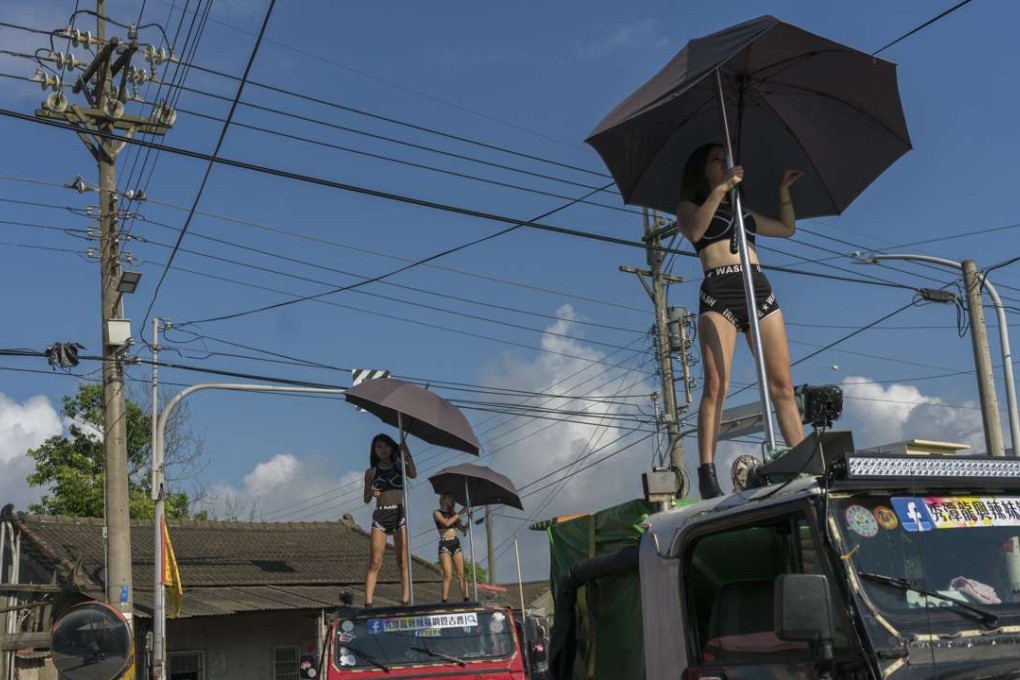In pictures: pole dancing for the gods in Taiwan
Performing scantily clad atop moving vehicles at religious ceremonies may sound like a bad life choice but, in Taiwan, the art form has a divine purpose

There aren’t many places in the world where scantily clad young women entertain the pious with a bit of pole dancing, but Taiwan is one of them.
Coming across a convoy of jeeps atop which the girls do their thing as techno blasts out across the rice paddies, an outsider might be forgiven for suspecting the worst, but these women are dancing for the gods, in a ritual called “miào huì”, or “temple gathering”. Miào huì is associated with both the Buddhist and Taoist religions, which have become highly intermixed on the island.
“People who haven’t seen this may think there is more to our work aside from dancing,” says 21-year-old Li Yi-ting, a dancer who freelances at miào huì. “But usually, if people watch us, they know what our work is. It is definitely not sexual.”
Li picks up jobs on Line, a South Korean chat app that is popular in Taiwan, and posts her profile in groups for clients to browse. She generally earns between NT$2,000 (HK$490) and NT$3,000 per gig. When she’s hired, she meets a driver at a specified location to make her rounds with a small group of other dancers.

The general public see this type of entertainment as being part of the Buddhist/Taoist religious culture, a way of giving thanks to the gods, who are no doubt as partial to the young female form as their human counterparts.